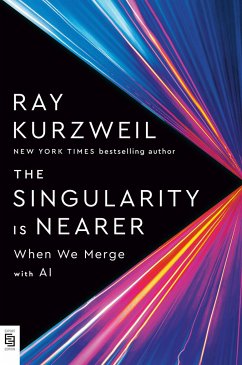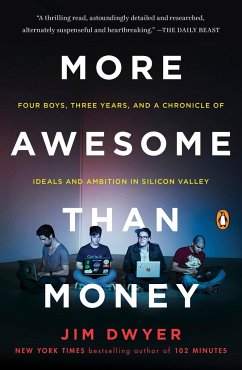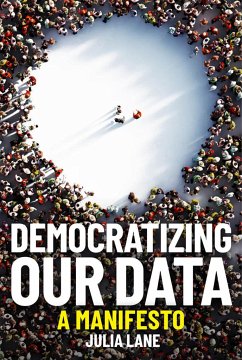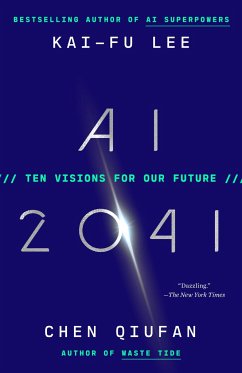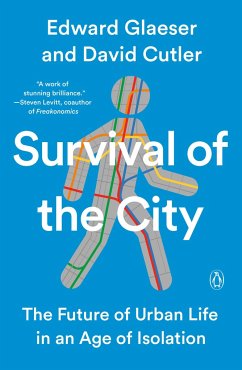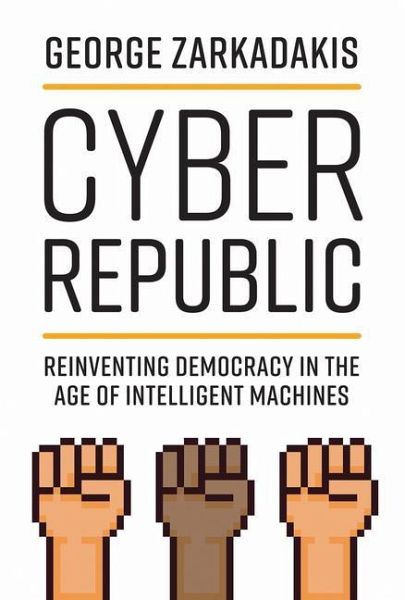
Cyber Republic
Reinventing Democracy in the Age of Intelligent Machines
Mitarbeit: Tapscott, Don

PAYBACK Punkte
7 °P sammeln!
How to make liberal democracies more inclusive and the digital economy more equitable: a guide for the coming Fourth Industrial Revolution.Around the world, liberal democracies are in crisis. Citizens have lost faith in their government; right-wing nationalist movements frame the political debate. At the same time, economic inequality is increasing dramatically; digital technologies have created a new class of super-rich entrepreneurs. Automation threatens to transform the free economy into a zero-sum game in which capital wins and labor loses. But is this digital dystopia inevitable? In Cyber...
How to make liberal democracies more inclusive and the digital economy more equitable: a guide for the coming Fourth Industrial Revolution.
Around the world, liberal democracies are in crisis. Citizens have lost faith in their government; right-wing nationalist movements frame the political debate. At the same time, economic inequality is increasing dramatically; digital technologies have created a new class of super-rich entrepreneurs. Automation threatens to transform the free economy into a zero-sum game in which capital wins and labor loses. But is this digital dystopia inevitable? In Cyber Republic, George Zarkadakis presents an alternative, outlining a plan for using technology to make liberal democracies more inclusive and the digital economy more equitable. Cyber Republic is no less than a guide for the coming Fourth Industrial Revolution.
Zarkadakis, an expert on technology and management, explains how artificial intelligence, together with intelligent robotics, sophisticated sensors, communication networks, and big data, will fundamentally reshape the global economy; a new "intelligent machine age" will force us to adopt new forms of economic and political organization. He envisions a future liberal democracy in which intelligent machines facilitate citizen assemblies, helping to extend citizen rights, and blockchains and cryptoeconomics enable new forms of democratic governance and business collaboration. Moreover, the same technologies can be applied to scientific research and technological innovation. We need not fear automation, Zarkadakis argues; in a post-work future, intelligent machines can collaborate with humans to achieve the human goals of inclusivity and equality.
Around the world, liberal democracies are in crisis. Citizens have lost faith in their government; right-wing nationalist movements frame the political debate. At the same time, economic inequality is increasing dramatically; digital technologies have created a new class of super-rich entrepreneurs. Automation threatens to transform the free economy into a zero-sum game in which capital wins and labor loses. But is this digital dystopia inevitable? In Cyber Republic, George Zarkadakis presents an alternative, outlining a plan for using technology to make liberal democracies more inclusive and the digital economy more equitable. Cyber Republic is no less than a guide for the coming Fourth Industrial Revolution.
Zarkadakis, an expert on technology and management, explains how artificial intelligence, together with intelligent robotics, sophisticated sensors, communication networks, and big data, will fundamentally reshape the global economy; a new "intelligent machine age" will force us to adopt new forms of economic and political organization. He envisions a future liberal democracy in which intelligent machines facilitate citizen assemblies, helping to extend citizen rights, and blockchains and cryptoeconomics enable new forms of democratic governance and business collaboration. Moreover, the same technologies can be applied to scientific research and technological innovation. We need not fear automation, Zarkadakis argues; in a post-work future, intelligent machines can collaborate with humans to achieve the human goals of inclusivity and equality.




